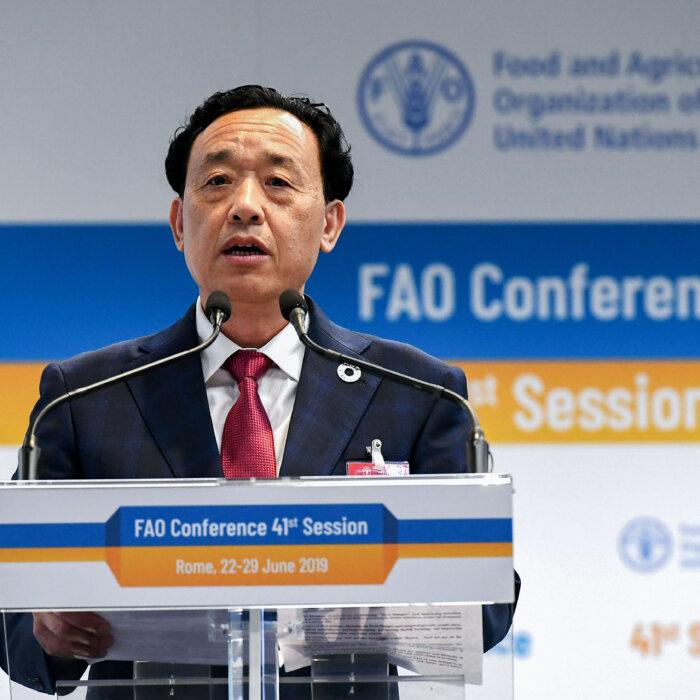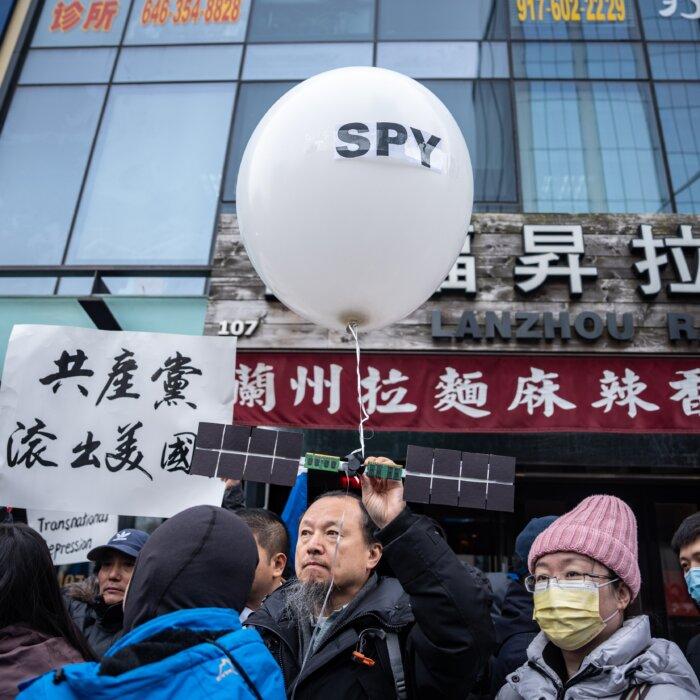The Chinese regime is increasingly sending groups that pose as nongovernmental organizations (NGOs) to the United Nations in an effort to suppress criticism of its human rights record, according to a report published by the International Consortium of Investigative Journalists (ICIJ) on April 28.
“Since Xi’s reelection as Communist Party general secretary in 2017 and president the following year, China has sought greater influence within the U.N. human rights system and become more aggressive in silencing dissent,” the report reads.
The ICIJ found that the number of Chinese NGOs holding consultative status with the U.N. has nearly doubled since 2018.
An ICIJ analysis of 106 NGOs from China, Hong Kong, Macau, and Taiwan found that 59 are not independent but are “closely connected” to the Chinese Communist Party (CCP). The ICIJ referred to these Beijing-backed NGOs as “GONGOs” or “government-organized nongovernmental organizations.”
Ten of these GONGOs receive more than 50 percent of their funding from Beijing, the ICIJ noted.
In at least 46 of these groups, directors, secretaries, vice presidents, or other high-ranking staff also hold positions in the Chinese regime’s departments or within the CCP.
Additionally, 53 of these NGOs pledge loyalty to the CCP on their websites or in other official documents. Among them, 12 agree to defer decisions, such as leadership appointments, to the Party.
“In 2024, 33 Chinese NGOs showed up about 300 times on the lists of speakers at Human Rights Council sessions,“ the report reads. ”There were only three of them in 2018. None criticized China.”
Rana Siu Inboden, a senior fellow at the Strauss Center for International Security and Law at the University of Texas at Austin, was quoted in the report as saying that Beijing “is clearly using NGOs as a tool.”
The CCP’s Tactics
Delegates from the Beijing-backed groups seek to “disrupt and drown out” criticism of China, heap praise on the CCP, and monitor and intimidate those who come to Geneva, Switzerland, to testify against China.“It’s corrosive,“ Michèle Taylor, who served as the U.S. ambassador to the U.N. Human Rights Council from February 2022 to January 2025, was quoted as saying in the ICIJ’s findings. ”It’s dishonest. It’s subversive.”
Beijing-backed groups “are masquerading as NGOs” as part of a broader effort by the CCP “to obfuscate their own human rights violations and reshape the narrative around China’s actions and culpabilities,” according to Taylor.
The ICIJ and its media partners spoke to 15 activists and lawyers dedicated to China’s human rights who “described being surveilled or harassed by people suspected to be proxies for the Chinese government,” according to the report.
These incidents happened both inside the U.N. and in Geneva at large.
Some activists said their relatives, whom they believe were pressured by Chinese authorities, had urged them to cease their public activism or cautioned them about the risks of their actions, according to the ICIJ.
The report cites an incident in March 2024, when some rights activists refused to set foot inside the U.N. buildings out of fear that Beijing’s presence could result in retribution against their families in China.
“Instead, they gathered for a secret meeting on the top floor of a nondescript office building nearby,“ the report reads. ”They were there to discuss human rights abuses in China and Hong Kong with the U.N. high commissioner for human rights, Volker Turk.”
Rushan Abbas, co-founder of the U.S.-based Campaign for Uyghurs, told the ICIJ that after she and other NGO delegates entered the U.N. building where China’s review was being held, “those Chinese GONGOs were taking pictures of [the delegates].”
“I did not report [this] to the U.N. authorities because I lost faith in them, as China was acting ... like the U.N. was its playground,” Abbas was quoted as saying in the report.
The ICIJ stated that independent organizations now have a greater responsibility to speak out about atrocities because of the rise of autocracy around the world.
“If China’s power continues to go unchecked by U.N. authorities, it threatens the credibility of the institution in its efforts to monitor and document violations and abuses not just in China, but all over the world,” the group stated.







